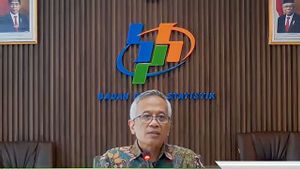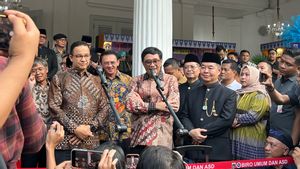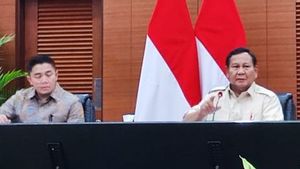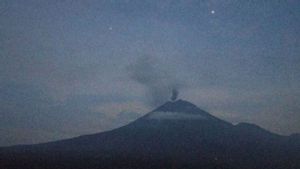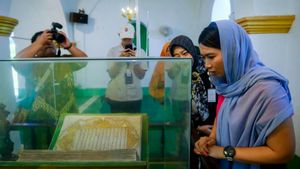JAKARTA - The Center for Research and Development of Oil and Gas Technology (Lemigas) and the Directorate of Oil and Gas Engineering and Environment of the Ministry of Energy and Mineral Resources together with the Geological Agency, academics, cooperation contract contractors (KKKS), collaborate to update the potential for carbon storage.
"We are intensifying the pathway towards the implementation of CCS/CCUS (carbon capture and storage/carbon capture, utilization, and storage), collaborating with professional experts, Lemigas testing institutions, academics, KKKS, and other stakeholders. A joint CCS/CCUS technical team is being prepared Last week, the team discussion was carried out," said Mirza Mahendra, Director of Oil and Gas Engineering and Environment at the Ministry of Energy and Mineral Resources, quoted from ANTARA, Sunday, September 18.
The CCS/CCUS study in Indonesia will be updated with CO2 storage calculations, as well as more updated technology and cost aspects according to developments.
On the other hand, according to Mirza, the presence of CO2 emissions from oil and gas production that is released (venting) safely and in a limited manner also needs to be minimized.
The application of CCS/CCUS technology is part of the energy transition effort to support the achievement of the net zero emission (NZE) target by 2060 or sooner.
Oil and gas KKKS have also started to aggressively minimize carbon emissions.
"The government continues to encourage cleaner energy by applying technology. Studies and implementation of low-carbon programs in the oil and gas sub-sector must be intensified by KKKS, under government supervision. CCS/CCUS technology is one of the efforts to minimize future CO2 emissions," added Mirza.
The current study of Indonesia's CCS/CCUS potential is mainly in the oil and gas production zone and the oil and gas reservoir (depleted oil and gas reservoir).
Head of Lemigas, Directorate General of Oil and Gas, Ministry of Energy and Mineral Resources, Ariana Soemanto, added that the CCS/CCUS joint technical team will result in updating the calculation of CO2 storage capacity in various geological formations, sedimentary basins, both in depleted oil and gas reservoirs, as well as saline formations or high salinity water reservoirs.
SEE ALSO:
This is supported by a storage potential calculation method that involves a team of professional experts, Lemigas, as well as academics and business entities. The CCS/CCUS joint technical team will also produce technology and cost aspects studies.
"The Lemigas testing laboratory and its technical team, as well as professional and academic collaboration will support updating the calculation of CO2 storage potential with various basin data and the latest studies. Also covering technology and cost aspects. In addition, LEMIGAS also supports testing and services for CCS/CCUS studies and the reduction of CO2 in KKKS, in line with efforts to utilize clean energy technology," said Ariana.
The English, Chinese, Japanese, Arabic, and French versions are automatically generated by the AI. So there may still be inaccuracies in translating, please always see Indonesian as our main language. (system supported by DigitalSiber.id)




